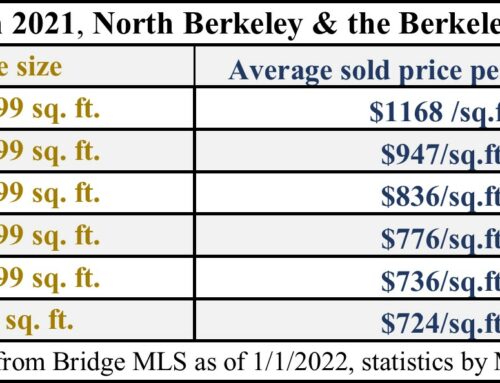Why are most sellers in our area no longer accepting “love letters” from buyers?
In our market, where buying a home is a super-competitive process, it used to be the case that buyers would include a “love letter” with their offer in hopes that it would influence the seller in their favor. The letter would tell the seller about the buyers, their qualifications, and why this property would be the perfect home for them. It also often included a photo of the buyers.
The idea was that, because many (even most) sellers have some emotional attachment to the property they’re selling, providing more information about the buyers and how much they appreciate the property could highlight commonalities and make it easy for the sellers to picture a particular set of buyers as the new owners. Maybe the seller would think “Oh, these buyers are a cute young couple who want to raise their family here like we did!” Or, “Look, we both work for X Company!” Or “These people love to garden, so will maintain the yard I put so much effort into!” Buyers hoped that these commonalities might lead the seller to choose their offer over others (maybe even if their price wasn’t quite as high).
The problem with these letters is that they can reveal information about the buyers that the seller cannot legally consider in choosing between offers.
Sellers are prohibited by law from choosing a buyer based on any of these criteria: race, color, ancestry, national origin, religion, sex, sexual orientation, gender, gender identity, gender expression, marital status, familial status, source of income, disability, medical condition, citizenship, primary language, immigration status, military/veteran status, age, criminal history, and any arbitrary determination.
Notice that my “cute family” example above is on the list of prohibited criteria (familial status), and “We both work for the same company” is related to source of income.
Even the best-intentioned seller, who would never knowingly violate Fair Housing laws, could be subconsciously influenced, and even if this is not the case, it is still safer as a seller to not have information related to the prohibited criteria at all. In our super-competitive market, there are routinely multiple unsuccessful buyers, and there is always the risk that an unhappy buyer whose offer was not accepted could claim that a decision was influenced by something that is in a protected category.
The safest choice is to “just say no” to buyer letters. If you as the seller do not have information the about buyers’ characteristics, it’s hard for someone to say that you made a decision for the wrong reasons. I think skipping the buyer letters is not just the safest choice, but it’s also the right choice, because it levels the playing field for everyone.





















